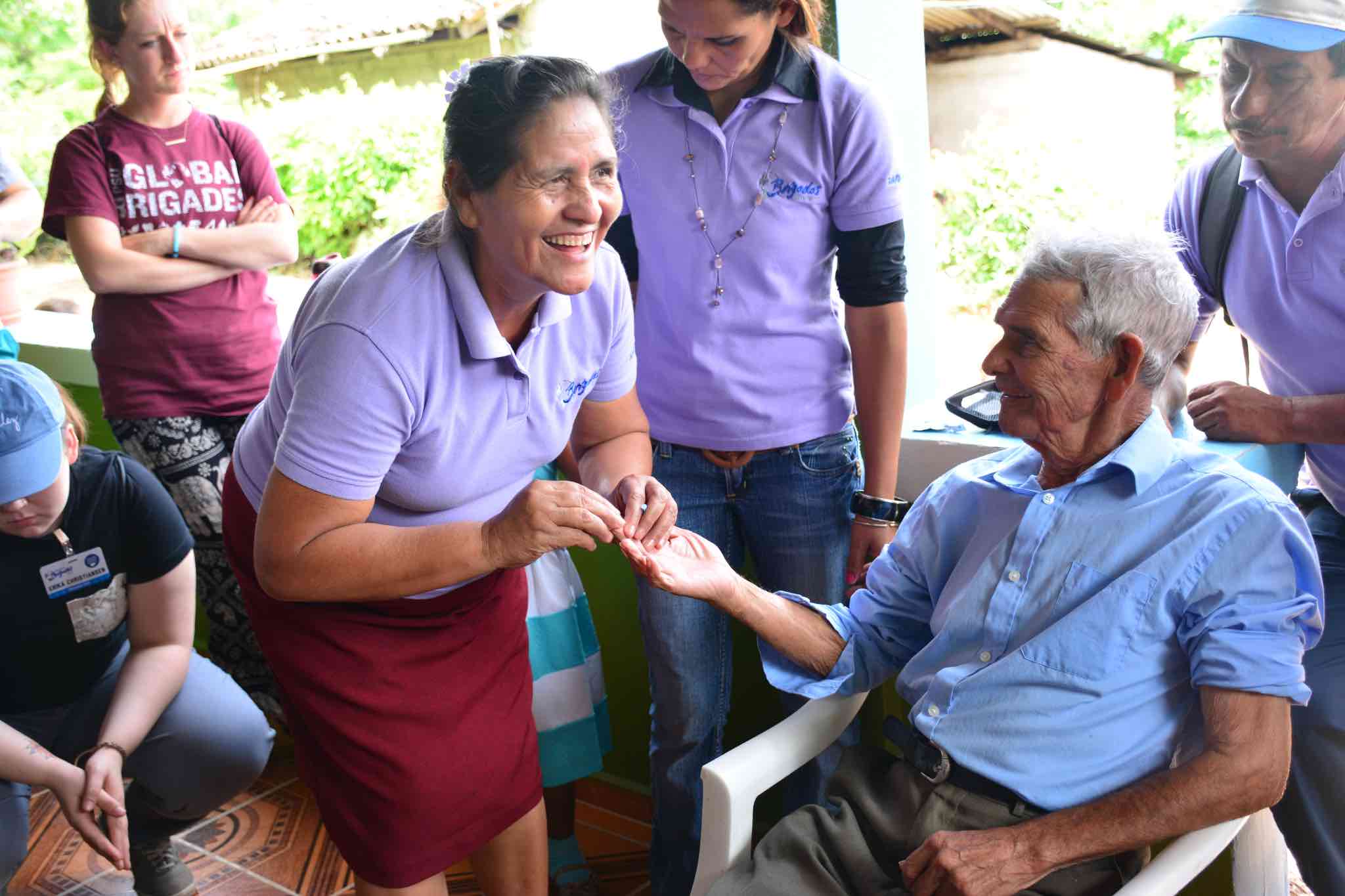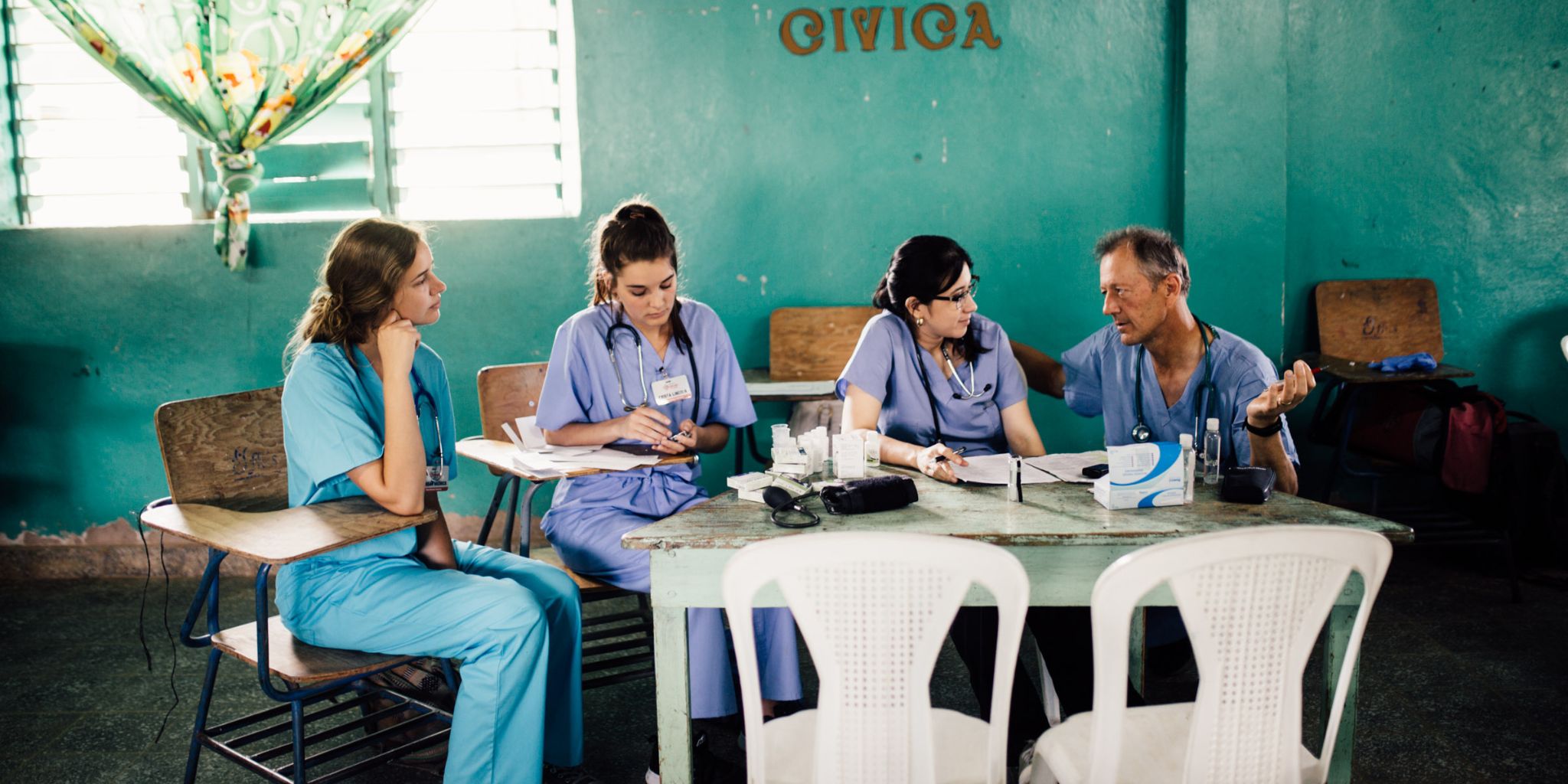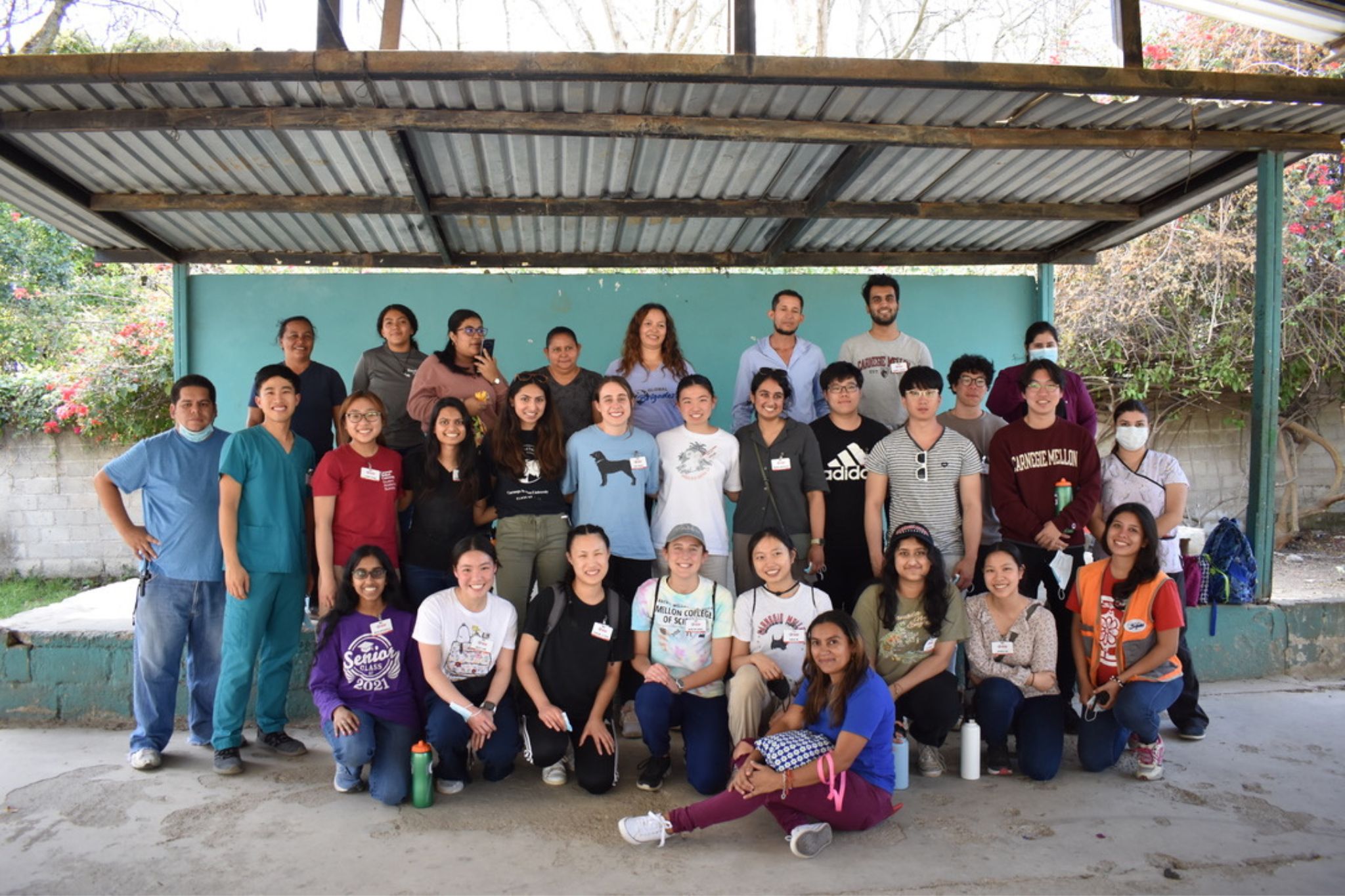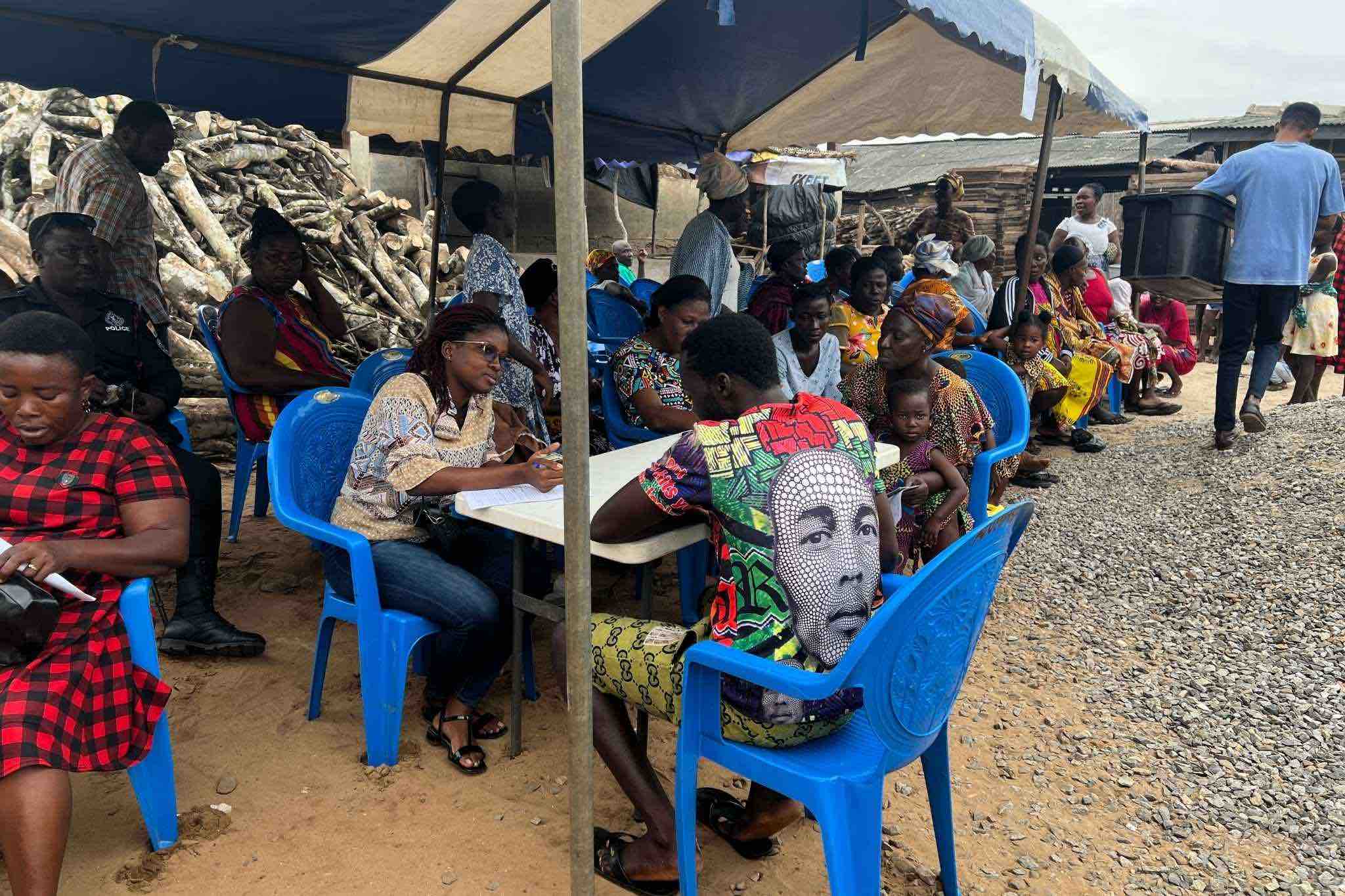International volunteering can count as clinical experience for pre-med students, but it depends on the type of work you do and the organization involved. For a clinical experience to be valid, it typically requires direct interaction with patients or involvement in medical care.
International volunteering opportunities through organizations like Global Medical Brigades offer pre-med students exposure to patient care and education. These experiences are a valuable tool in understanding global health and supporting a well-rounded medical school application.
That doesn’t mean all volunteer programs abroad meet the criteria for clinical work, though. It’s important to carefully evaluate each opportunity before committing to make sure it aligns with your future career goals and clinical requirements.
Choosing the Right Program
The organization you partner with for international volunteering matters. It’s not just about gaining clinical hours. It’s about respecting and empowering those you aim to help, making your contribution truly valuable, ethical, and impactful.
Here are a few things to consider as you choose a program for volunteering experience:
- It’s sustainable. The organization you partner with shouldn’t promote voluntourism or projects without long-term solutions. There should be a plan in place for programs to function after an organization leaves.
- It’s empowering. Some international programs perpetuate white saviorism, or the idea that marginalized communities need saving. Programs that operate from a sustainable approach foster a true impact rather than dependency on an organization.
- It genuinely contributes to partner communities. At Global Brigades, we work in partnership with communities, which increases the likelihood that our work results in sustainable economic, health, and infrastructure improvements.
- It works with local healthcare professionals. Community buy-in is essential to a successful program. At Global Brigades, our partners know their communities best. A high level of collaboration ensures a more meaningful impact.
- It offers hands-on experience. Ethical organizations provide volunteers with proper training while shadowing physicians on-site. That means a great opportunity for hands-on experience without overstepping their expertise in the healthcare setting.
Global Medical Brigades volunteers support efforts to create sustainable healthcare systems in our partner communities. Are you ready to impact global health?
Keep in Mind Volunteering Recommendations
According to the Association of American Medical Colleges (AAMC), there is no firm rule about the number of hours expected on medical school applications. A higher number of hours doesn’t necessarily mean you’re a better candidate. The quality of your experiences matters more, and it’s up to applicants to show why those hours were meaningful.
That said, most schools like to see at least 100-150 hours of volunteering experience on top of 100-150 hours of clinical experience. The two may overlap in some ways, but volunteering can happen outside of healthcare settings.
Don’t wait until the last minute to seek out volunteer work. A few years’ worth of volunteer history looks much better than 150 hours crammed into the few months before applying to medical school.
Think about the reasons you want to go into healthcare and match those ideals with opportunities nearby. That can look like tutoring high school students in an underserved neighborhood or supporting a nonprofit’s efforts to boost medical outreach in a community.
Clinical experience for medical school is defined in a more limited way. To count toward clinical experience, the volunteering or work you do must happen in a clinical setting where medical services are provided or involve direct medical care to a patient.
There is some gray area here. Some schools may not consider working a crisis hotline as clinical volunteering, but it could be an excellent way to boost your overall volunteer experience. Clinical research opportunities or internships may not apply if you aren’t working directly with patients.
Here are a few examples of common clinical opportunities, including a few options for paid experiences to pursue while you prep for med school:
- Hospital Volunteer: This is the most common way to earn clinical volunteering hours. Gain exposure to the hospital setting by assisting staff, supporting patients, and observing medical care at your local hospital.
- Free Clinic Volunteer: Volunteer at free health centers or mobile clinics offering care to underserved patients in your local community. Tasks may include patient intake, administrative support, and shadowing healthcare providers.
- Vaccination/Testing Site Volunteer: Help with administrative tasks, patient intake, or post-vaccination observation. This is a good way to gain insight into medical responses on a larger scale.
- Hospice Volunteer: Provide emotional support and basic care to terminally ill patients. Spending time in a hospice setting gives firsthand experience of how providers interact with patients and families during the most stressful times.
- Nursing Home Volunteer: Engage with elderly residents, assist with basic care, and interact with healthcare staff in assisted living facilities. Nursing home placements are a great way to learn about the challenges involved with senior care.
- Rehabilitation Center Volunteer: Assist therapists and patients during physical or occupational therapy sessions, helping with exercises and patient care while observing recovery processes.
- Blood Drive Volunteer: Help with registration, donor assistance, and post-donation care at local blood drives. These kinds of experiences offer insight into public health efforts while allowing volunteers to interact with patients one-on-one.
- Medical Scribe: Medical scribing is an opportunity to boost oral and written communication skills and medical terminology in a fast-paced setting. Generally, hospital scribes are paid following on-the-job training about patient privacy and relevant protocols.
- Medical Assistant (MA): You need a certificate to work or volunteer as an MA, but once you’re done, you’ll have direct access to patient care. Some MAs are certified to perform tasks like basic lab tests, blood draws, and patient education about new medications.
- Certified Nursing Assistant (CNA): You’ll need to complete a training program to work as a CNA. Once you’re trained and certified, you can earn clinical hours and work directly with patients while earning an income.
- Emergency Medical Technician (EMT): After completing an accredited course and passing an exam, pre-med students may receive a license to respond to emergency situations. You can work as an EMT volunteer or paid EMT.
- International Volunteer: Volunteering with organizations like Global Brigades teaches cultural sensitivity and new perspectives on global health while interacting with patients in partner communities.
Any of these opportunities would also apply to international students seeking opportunities for clinical experience in the U.S. In that case, admissions committees may want to see more examples of patient engagement and exposure to the U.S. healthcare system.
How Medical Admissions View International Volunteering
Medical school admissions committees typically view international volunteering in a positive light, but be aware that the quality of the program matters. How you present that experience is just as important as your GPA, MCAT scores, and extracurriculars.
This is where personal statements and medical school interviews come into play. Use thoughtful language to describe your experience as more than voluntourism. Focus on how you contributed to the community, emphasizing respect for local healthcare systems and cultural differences.
Highlight moments of collaboration with medical professionals to demonstrate what you learned from a healthcare perspective. A letter of recommendation from a team leader or clinic physician can support your account of how that experience led to personal growth.
You should also avoid overstating your role. A quality organization will only allow volunteers to perform tasks that they are qualified or trained to perform. Sometimes, that may mean more shadowing experience than patient care.
International volunteering can also serve as a bridge to opportunities for similar experiences domestically. For example, learning about global health disparities can inform similar healthcare challenges closer to home.
Contributing to a Greater Purpose
International volunteering can count toward your clinical experience and help your med school application stand out, and it can also provide opportunities for personal growth and global impact. You become a part of something bigger and learn the importance of sustainability in medicine.
By working with communities away from home, you gain insight into diverse healthcare systems and develop cultural sensitivity. If you’re considering volunteering internationally, choose organizations that empower local communities and support ethical work.
At Global Medical Brigades, we operate from a place of transparency and sustainability to support long-term public health gains. Join us in our work on the ground within our partner communities.
FAQ
How much clinical experience do I need for med school applications?
Clinical experience requirements vary by school, but most applicants aim for at least 100-150 hours of clinical volunteering. This is on top of volunteering hours that may not be directly related to medicine.
How many shadowing hours for medical school do you need?
Shadowing requirements differ by medical school. Some admissions committees may only require 12-24 hours, while others may want to see around 75 hours.
As with volunteer work and clinical volunteering, exceeding posted minimums isn’t always in your best interest. Quality matters.
Shadowing opportunities should show dedication to the medical field and demonstrate an interest in a specialty. If you’re unsure about a specialty, plan to shadow a few physicians with different competencies. You can express what you learned from multiple mentors in a personal statement.
Should I consider getting research experience?
Most medical schools don’t require research experience to gain admission into their programs. If you’re considering a medical school with a heavy research focus, that school may want to see that you’ve worked in an undergraduate research position or supported a study.
Research experience can demonstrate critical thinking skills and a commitment to advancing medical knowledge. It shows your ability to engage in scientific inquiry, something you’ll need to advance in medicine. As with volunteer or clinical work, the quality of your experience matters.
For those pursuing combined MD-PhD degree programs following pre-med or pre-health studies, publishing research, even as a second or third author, allows your application to stand out.
Global Brigades offers volunteers a number of additional opportunities to extend their Brigade by dedicating extra time to research work. Opportunities vary by country, but the long-term impacts of healthcare initiatives in partner communities are typically evaluated.







